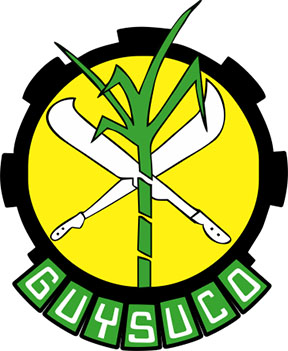Despite setting what was seen as a low target to cushion the devastating impacts of the 2021 floods, the Guyana Sugar Corporation (GuySuCo) has not been able to meet its first crop production target.
From a production target of 20,261, metric tonnes, the corporation has only managed to produce 13,076 metric tonnes of sugar. The bulk of the production came from the grinding estates in Berbice as the Uitvlugt estate on the West Demerara experienced mechanical issues. From a target of 4,295 metric tonnes only 66 metric tonnes were produced at Uitvlugt.
Neither of the other two estates was able to meet its quota despite surpassing weekly targets two times during the crop.
The Albion Estate fell short by 1,590 tonnes and only produced 7,488 from a target of 9078 whereas the Blairmont Estate produced 5,521 tonnes from a target of 6,887 tonnes, a shortfall by 1,376. The industry has fallen short of its production target by 7,185 tonnes. In 2021 the corporation produced 29,650 tonnes of sugar in the first crop.
The continued poor performance of the industry which is still receiving subventions from the state will increase pressure on GuySuCo and the government to deliver better production results.
Subsequent to the floods last year, GuySuCo revised its target to 66,000 tonnes of sugar for this production year. This figure is a sharp drop from the 2021 target of 97,420 tonnes and the revised figure of 70,000 tonnes.
For the second crop this year, the corporation has set a target of 45,000 tonnes of sugar.
The grinding estates last year produced a combined output of 29,650 tonnes and 28,345 tonnes of sugar in the first and second crop, respectively.
The mid-year flooding in 2021 resulted in more than 30 per cent of the sugarcane being destroyed. The floods were also responsible for GuySuCo not being able to produce the highest quality of sugar.
“What we currently have now is light sugarcane. It is not the best of quality and that is impacting production. The canes have no weight,” a source familiar with the crisis at the three grinding estates had explained in January this year. Sugarcane that was waterlogged for more than 65 days resulted in poor sucrose content.
The poor production also highlights the dilemma the government faces after having promised in its 2020 manifesto to reopen three estates that had been shuttered under the APNU+AFC government. Rose Hall is the closest to being reopened. Industry sources say there is virtually no hope for any reopening of the Skeldon and East Demerara estates.
Last week, five heavy-duty tractors, costing a total of $98 million were commissioned at the Rose Hall Estate by Minister of Agriculture Zulfikar Mustapha, who said they represented a “new beginning” for the factory.
The tractors, which are expected to be operational before the end of July following a series of training programmes, will be used in the fields for land preparation as the factory prepares to resume operation. Over 600 persons have since been reemployed at the estate, which Mustapha said was a “real achievement.”
“These tractors will help to bring back the cultivation of Rose Hall Estate once again into proper being,” he said.
Without giving an actual date, Mustapha assured the workers that the factory will reopen “and it will reopen shortly,” telling the workers that the Rose Hall estate will have to make a valuable contribution to the country’s development as he then reminded them that following its closure the communities surrounding the estate and where workers resided were “plunged into depression.”






